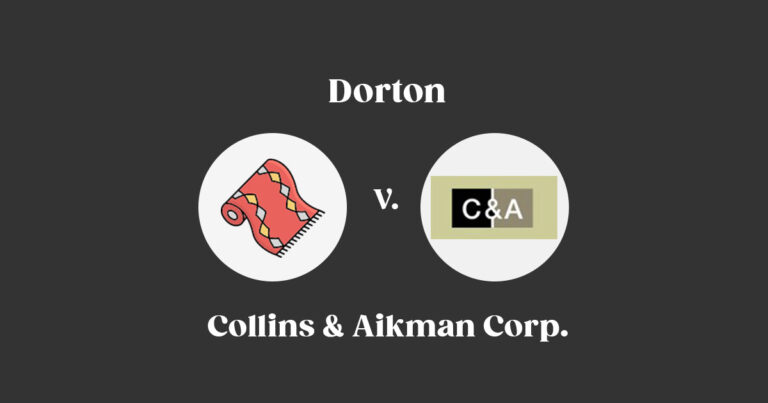Quick Summary
Dorton (plaintiff) filed a lawsuit against Collins & Aikman Corp. (defendant) for fraud and misrepresentation regarding the quality of carpets he purchased over three years. The district court denied the stay, relying on U.C.C. § 2-207, and found no binding arbitration agreement was formed between the parties. The case was removed to the district court based on diversity, and Collin appealed.
The Supreme Court reviewed the Uniform Commercial Code, U.C.C. § 2-207, to determine whether the defendant’s acknowledgment forms were acceptances and whether the arbitration provision accepted by the plaintiffs materially altered the contract.
The court concluded that accepting an offer must be expressly conditional on the offeror’s assent to additional or different terms to be enforceable under U.C.C. § 2-207 and ruled that there was no enforceable agreement to arbitrate based on the acknowledgment forms, thus remanding the case for further proceedings.
Rule of Law
Accepting an offer must be expressly conditional on the offeror’s assent to additional or different terms to be enforceable under U.C.C. § 2-207. However, a definite and seasonable expression of acceptance is binding even if it includes additional terms unless the terms materially alter the offer.
Facts of the Case
Dorton (plaintiff), who did business as Carpet Mart, filed a lawsuit against Collins & Aikman Corp. (Collins)(defendant) for fraud and misrepresentation regarding the quality of carpets purchased by him over a period of three years. It was discovered that the carpets were composed of cheaper materials than what was promised. As a result, Collins insisted on enforcing a binding arbitration clause printed in small letters on the back side of all sales acknowledgment forms filled by the plaintiff.
The district court denied the stay, relying on U.C.C. § 2-207, and found no binding arbitration agreement was formed between the parties. The court noted that Dorton (plaintiff) accepted each carpet shipment without objecting to the terms on the sales acknowledgment forms.
In response, Collins appealed the denial of a stay, arguing that Dorton should be bound to an arbitration agreement as per their contract. The plaintiff argued that there was no evidence indicating he had agreed to any terms or conditions mentioned on the sales acknowledgment form, and thus he should not be bound by them.
He further claimed that he had suffered significant losses due to the misrepresentation and sought damages. The case was removed to the district court based on diversity, and Collin appealed.
Issue
Is there an enforceable agreement to arbitrate based on the acknowledgment forms?
Holding and Conclusion
No.
The court reviewed the Uniform Commercial Code, U.C.C. § 2-207, and determined no enforceable agreement to arbitrate based on the acknowledgment forms. Therefore, it cannot be concluded that there is an enforceable agreement to arbitrate in this case.
Reasoning and Analysis
The U.C.C. recognizes that offer and acceptance are not always identical when a battle of the forms continues. The court must consider all foreseeable losses that can reasonably be expected to come out of a dispute. If an acceptance contains an additional term that doesn’t significantly change the offer, it may be treated as a proposal that binds the offeror. This means that the offeror must express assent regarding the particular term for it to become part of the contract.
In such cases, the court will review the Uniform Commercial Code, U.C.C. § 2-207, to determine whether the defendant’s acknowledgment forms were acceptances and whether the arbitration provision accepted by the plaintiffs materially altered the contract. If it did, it could not become part of the contract, and the court will remand the case to determine whether this is true.
Relevant FAQs of this case
How clauses under U.C.C. § 2-207 determine whether additional terms materially alter the contract?
U.C.C. § 2-207 states that an acceptance containing additional terms may be treated as a proposal that binds the offeror if the additional terms do not materially alter the offer. Material alteration is determined by considering whether the additional terms would result in surprise or hardship if incorporated into the contract without the offeror’s express agreement.
- For example: in the case of Dorton v. Collins & Aikman Corp., the court found that the arbitration provision printed on the back of the sales acknowledgment forms materially altered the contract, and thus there was no enforceable agreement to arbitrate based on the acknowledgment forms.
References
Was this case brief helpful?
